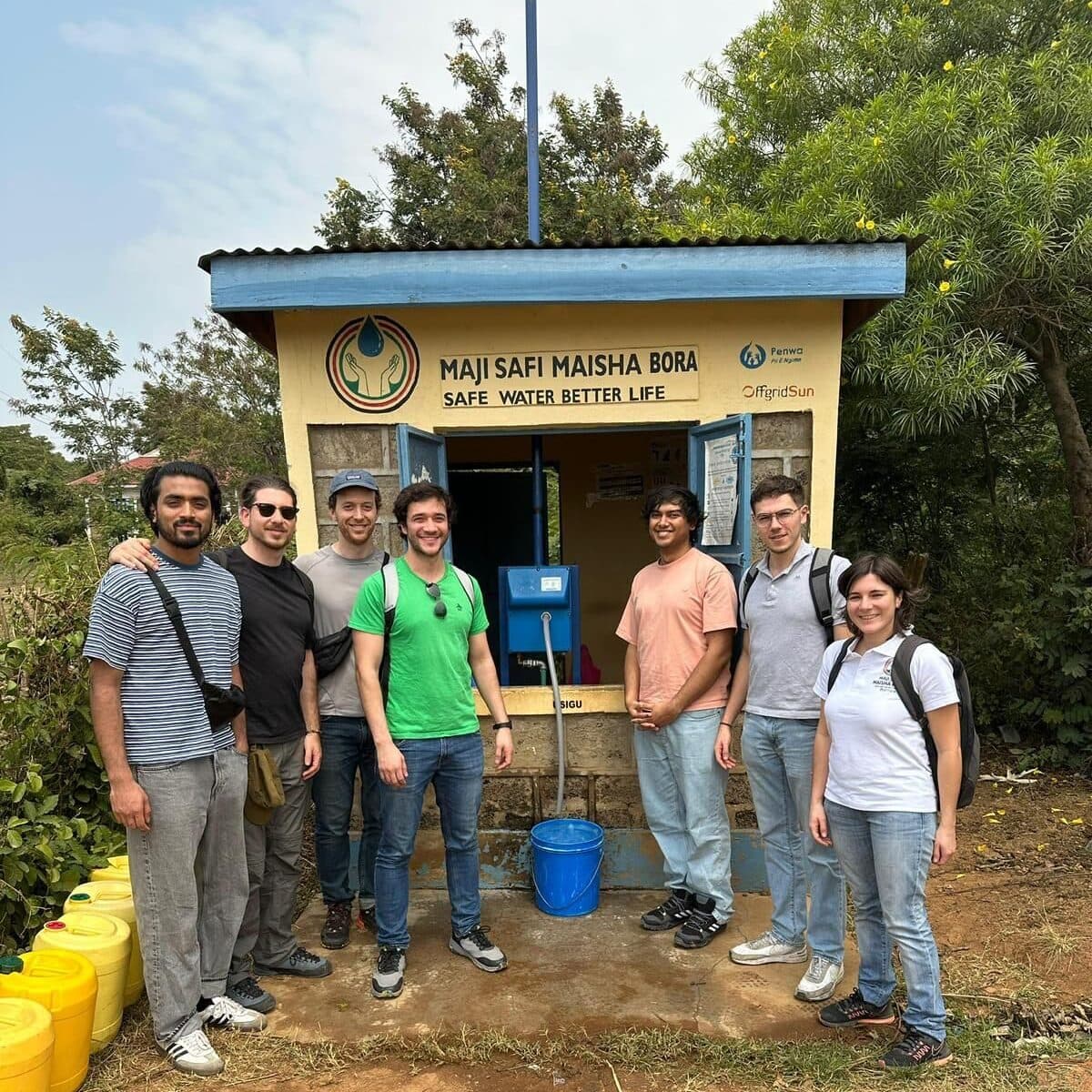At InnoEnergy, we believe in empowering the next generation of innovators and changemakers. Our annual IPOY (Integrated Project of the Year) trip is a cornerstone of this philosophy, offering students a unique opportunity to apply their skills in support of real-world challenges. This year, our journey took us to the heart of Kenya, to the rural Bondo area, where we had the privilege of collaborating with the community on their vital Maji Safi (Clean Water) project.
The coordinators and organisers for this impactful trip, Amedeo Ceccato and Advait Desai, share their reflections on an experience that was as challenging as it was rewarding.
Beyond Expectations: A Dive into the “Real” Kenya
“There was a lot of excitement in the air,” recalls Amedeo, reflecting on the days leading up to their departure. Having visited the African continent before, he was mentally prepared for the cultural shift, but Kenya presented its own unique discoveries. “I was particularly happy, though, that we were going into the deep part of the country, to see the ‘real’ part of it, not the tourist and softening area.”
A key focus for the team was to move beyond observation and actively contribute. “There was a little bit of fear that we wouldn’t be able to help that much,” Amedeo admits. “Personally, I wanted to give my 100% and manage to, not just see and witness, but as much as possible, do something concrete during that trip, some improvements. In the end, we definitely did that.”
Unforeseen Challenges and Ingenious Solutions
One of the most striking aspects of the trip was witnessing the local community’s remarkable resilience in the face of persistent infrastructure challenges with their Maji Safi system. “I was really surprised by the completely different way of facing a problem that people had in Bondo area,” Amedeo shares. He recounts the constant issues with the aqueduct – leakages, bursts, pressure problems – yet the local technicians maintained a surprising calm.
However, a lack of specific technical know-how sometimes hindered efficient problem-solving. A memorable anecdote highlights this: “We reached this kiosk, where they reported that the electronic card of the display had burned down. They changed it, and again it burnt down. And this is for 3 times, meaning 3 components substituted.” It wasn’t until the team investigated further that they uncovered the surprising culprit: “When we opened the kiosk, it was full of ants. There was a nest, and they were short-circuiting the card by building their nest there.” The solution was simple yet impactful: explaining the issue to the personnel and properly sealing the kiosk case.
From Over-Engineering to Practical Solutions
For Advait, the trip offered a crucial lesson in engineering philosophy. “Usually in engineering programs you are taught to work at the cutting edge and we tend to ‘overengineer’ solutions,” he explains. “However, in such a case it was evident we needed to ensure that whatever we proposed was actually feasible and study the social aspects first before performing any analyses.” This shift in perspective was invaluable: “I think the project definitely added some maturity to our decision-making abilities and that in itself is an invaluable experience.”
Heartwarming Connections and Lasting Impact
The team’s interactions with the local community were truly heartwarming. Advait fondly recalls a slight, amusing cultural difference: “When the temperature would drop to 22-24 °C, it was quite amusing to see people wear jackets and claim it was cold. I had just come from the Ski trip and found the contrast quite funny.”
More profoundly, the team witnessed the tangible benefits of the Maji Safi system, particularly for those living further from Lake Victoria. “The people who live especially further away from the Lake do see the most benefit in using the system as it saves them a lot of time and even money,” Advait explains. The community’s reception deeply moved him: “It was heartwarming to see how they welcomed us during the interview study and genuinely requested us to help make the project more reliable in the future and even expand if possible.”
A Powerful Resolve for Change
Amedeo and Advait agree that the IPOY Kenya trip was a truly transformative experience. They encapsulate their feelings with a powerful statement: “Overall, it was a wonderful experience. We got to witness an often-overlooked side of humanity far removed from our comfortable modern-day lives. The onsite presence strengthened our resolve to put forth feasible recommendations and pushed the team to try their utmost in every single area of investigation.”
What do they hope readers will take away from their journey? “The baseline to have a positive impact is so low that it’s almost a crime that more people don’t do so,” Advait asserts. “Clearly, current systems haven’t done enough; however, there is a genuine possibility to bring about social change through our collective actions, which may seem minute from afar but are incredibly powerful once you live the experience.”
The IPOY Kenya trip is a testament to the power of hands-on experience, cultural immersion, and the unwavering dedication of our students to support and learn from communities driving their sustainable solutions. Stay tuned for more updates on how the insights from this trip will continue to shape future innovation.
This blog is written by Varun Venugopal, Smart Electrical Networks & Systems (SENSE) Masters+ student.
